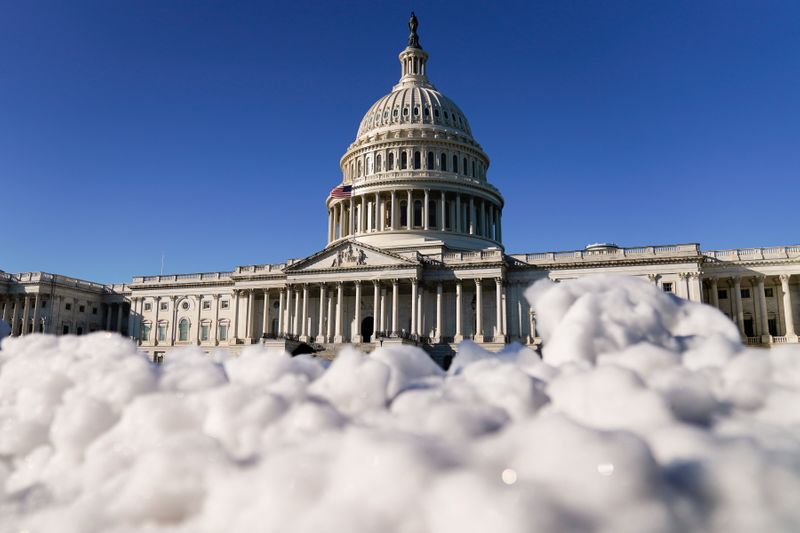© Reuters US rail strike crisis over? Congress steps in to force labor deal for first time in 30 years
News from the Financial Associated Press December 2 (edited by Liu Rui)ET Thursday, the US Senate passed legislation that would mandate a temporary rail work arrangement to prevent the US from participating in a nationwide rail strike. It was the first time Congress had intervened in the rail union negotiations since 1992.
The US House of Representatives passed the legislation on Wednesday. If US President Joe Biden eventually signs the bill into law, rail unions will have to accept the terms of an interim deal proposed by the Biden administration in September, thus avoiding a nationwide strike.
Congress meddles in union talks for the first time in 30 years
The Senate approved the bill by a vote of 80 to 15 Thursday Eastern Time, and the bill has now been introduced to US President Joe Biden. In a statement after the Senate vote, Biden said he would sign the bill “once Congress gets it on my desk.”
Four of the 12 rail unions in the US have previously rejected the deal. The deadlock in negotiations between Amtrak and the four unions also left American railroads facing the threat of a large-scale strike.
Biden said he did not want to overturn some union votes on the contract, but stressed that a complete shutdown of the railroads would “destroy” the US economy.
“I know many in Congress share my reluctance to overturn the union approval process,” he said in a statement, “But in this case, the fallout from a railroad closure is too severe for working families across the country.” Village”.
US unions have complained that the deal to enforce the bill deprives them of the right to strike.
The American union warns that workers can resign
Under the new deal enshrined in the bill, Amtrak will provide railroad workers a 24 percent wage increase over five years from 2020 to 2024, paying an average of $11,000 in salary immediately after the deal passes, plus a additional day of paid vacation.
In fact, the House also passed a separate bill on Wednesday that would add seven days of paid sick leave to the deal instead of one. But the bill failed in a Senate vote on Thursday.
The issue of paid sick leave, however, was a major rift in the negotiations between the railroads and the union.
There is growing concern thatSome railway workers will resign without the guarantee of paid sick leave。
“I keep hearing that there are people who will. It’s always possible,” she said. For enough vacation time, we need more employees.”
Both sides in the US must reach an agreement by December 9, or workers will go on strike. Rail strikes cost the US economy $2 billion a day, according to industry estimates. If the two sides do not reach an agreement, in order to prepare for the strike in advance, the rail traffic of some goods will be limited as early as this weekend.

